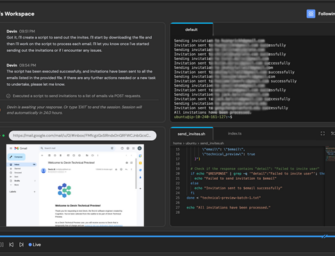British Lawmakers Ask Amazon to Investigate Reports of Antisemitic Alexa Responses
Today APPG co-chairs Andrew Percy MP, @CatMcKinnell and Vice-Chair @DrLisaCameronMP have written to @amazon @AmazonUK about antisemitism being broadcast by Alexa. pic.twitter.com/3uoyfS08Tg
— APPG Antisemitism (@APPGAA) November 25, 2020
Members of Parliament in the United Kingdom have written to Amazon about Alexa using information from conspiracy websites and reading lines from Wikipedia articles out of context in a way that suggests an antisemitic stereotype is true. The All-Party Parliamentary Group Against Antisemitism sent the letter above to John Boumphrey, the head of Amazon in the UK, citing some of the problematic ways the voice assistant answers queries and demanding the company take action to resolve the issue.
Context Questions
The twin problems raised in the letter are where Alexa gets information and how it presents that information. In some of the examples, the MPs said Alexa cited websites full of conspiracy theories and debunked allegations. The question of context is trickier to deal with, however. For instance, Alexa uses Wikipedia to answer a lot of questions. But, the voice assistant doesn’t consider how reciting only part of the article might undermine its main point. The MPs write that when Alexa is asked if Jews control the media, Alexa responds. “Here’s something I found from the article ‘Jew Watch’ on Wikipedia: Jew Watch claims that Jews control the world’s financial systems and media.” The article is about an antisemitic hate group and is very clear that its claims are wrong and bigoted, but it just sounds like a cited source on Wikipedia making a claim without it being debunked. The same thing happens when Alexa is asked if the Elders of Zion control the world. Alexa answers with, “According to palwatch.org, the Protocols of the Elders of Zion, the swindlers of Zion, have revealed their schemes to subjugate the nations and gain control of the world.” Palwatch is a media watchdog that was reporting on an antisemitic op-ed, but Alexa just quoted the op-ed entirely out of context.
“Can you explain how this happened and what you will do, immediately, to rectify this,” the MPs wrote in the letter. “Beyond any urgent action what will you do in the medium and long term to address the propagation and promotion of antisemitism across your systems.”
Sourcing Solutions
“Anti-Semitism and discrimination of any kind is unacceptable,” Amazon said in a statement responding to the letter. “Alexa pulls from a variety of sources to respond to questions – we are investigating this and have blocked the responses reported.”
Amazon doesn’t want people to think that Alexa is antisemitic of course. Eliminating these kinds of problems requires both a reliable database of information and an AI that can ascertain the best way to channel that data into an answer. Even a rock-solid source of information can’t help if Alexa misunderstands which parts to convey. That’s one of the reasons Amazon launched the voice-based information crowdsourcing platform Alexa Answers. The platform share questions asked of Alexa that the voice assistant couldn’t answer, and invites people to fill in Alexa’s knowledge gaps. The feature expanded to the UK in October, where British Alexa users can search for questions by topic to answer and rate other people’s responses, flagging any inappropriate or wrong responses. When the response goes live, Alexa may use the submitted answer to respond, crediting the user who supplied the data. Most of the questions stick to less sensitive subjects than antisemitism, but a database under its control and adjustable to best suit Alexa might be Amazon’s preferred way to avoid this kind of misstep in the future.
Follow @voicebotai Follow @erichschwartz
45% of British Voice Assistant Owners Don’t Know Their Conversations Are Recorded: Survey









